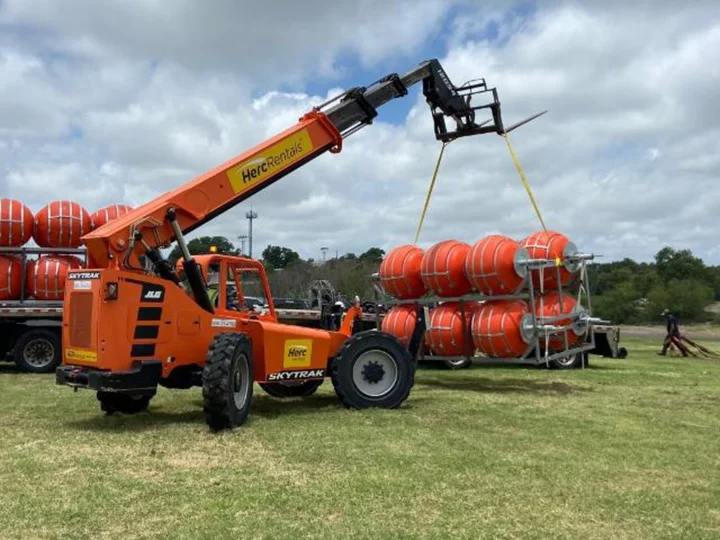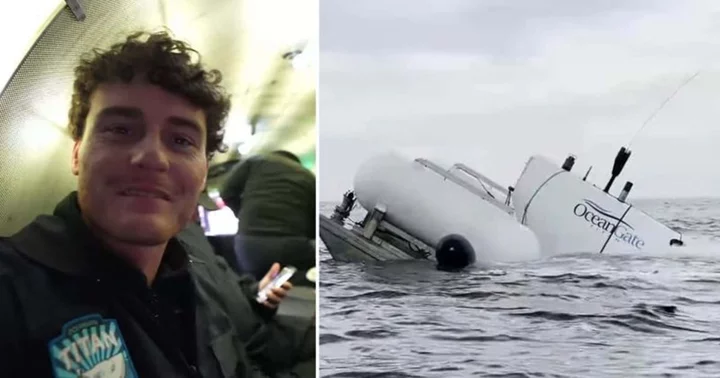The owner of a Texas canoe and kayaking company filed a lawsuit on Friday seeking to stop the installation of a marine floating barrier on the Rio Grande, claiming Gov. Greg Abbott has no right to regulate the border.
The lawsuit was filed on the same day that Texas started deploying buoys for the barrier in an attempt to deter migrant crossings on the river along the US-Mexico border.
The suit lists the state of Texas and Abbott, as well as the Texas Department of Public Safety and the Texas National Guard. CNN has reached out to Abbott's office for comment.
"Our lawsuit seeks to protect communities on the Texas-Mexico border from Governor Abbott's misleading politics," said attorney Carlos Flores, who represents plaintiff Jessie Fuentes, the owner of Epi's Canoe & Kayak Team Llc.
Abbott, a longtime critic of the Biden administration's border policies, announced the plan to install the 1,000-foot floating barrier last month.
The lawsuit alleges the buoys will prevent Epi's and Fuentes, the company's owner-operator, from conducting tours and canoe and kayak sessions in the border town Eagle Pass, causing "imminent and irreparable harm to EPI."
The suit accuses the Republican governor of misapplying the Texas Disaster Act of 1975 to justify the buoy system -- which "has no logical connection to the purpose of the Disaster Act, which is to respond to 'the occurrence or imminent threat of widespread or severe damage, injury, or loss of life or property resulting from any natural or man-made cause.' "
Abbott, the suit said, cannot "create his own border patrol agency to regulate the border and prevent immigrants from entering Texas."
Additionally, the US Constitution and federal statues do not empower Texas with authority to enforce immigration laws, according to the suit.
The suit said the buoys "represent a hateful policy that intends to create the impression that Mexicans, immigrants, and Mexican Americans ... are dangerous." The floating devices also will prevent Epi's from conducting tours and canoe and kayak sessions in Eagle Pass, according to the suit.
Flores said the lawsuit, which seeks a temporary and permanent injunction, was filed on Friday before the buoys were installed in the Rio Grande.
Abbott posted a 15-second video to Twitter showing buoys being loaded from trailers that would be deployed near Eagle Pass. The Texas Department of Public Safety is overseeing the deployment, the governor said in the tweet Friday.
During last month's announcement, Texas Department of Public Safety Director Col. Steven McCraw touted the buoy barrier could be "quickly deployed" and said it's mobile. He explained the buoy would be anchored to the bottom of the waterway, adding the buoys are roughly 4 to 6 feet in height depending on the water level.
The new barrier comes after a series of migrant drownings in the Rio Grande River in recent days left four people dead, including an infant, officials said.
Last weekend, a woman and a baby girl were found unresponsive in the river, said Texas DPS Lt. Christopher Olivarez. A dead man and woman were found on Sunday and Monday, respectively, he added.
In recent years, migrants have resorted to increasingly risky -- and often fatal -- paths to evade detection and enter the US. In March, a migrant was found dead among a dozen people stowed away in a train car near Eagle Pass.
In 2022, a Texas National Guardsman drowned in the Rio Grande attempting to rescue a woman crossing the river. That year was the deadliest for migrants crossing the US-Mexico border, with at least 748 people dying at the border.
Immigrant rights advocates have attributed the rise in deaths at the border to policies that have made it more difficult for migrants to seek refuge in the US.









